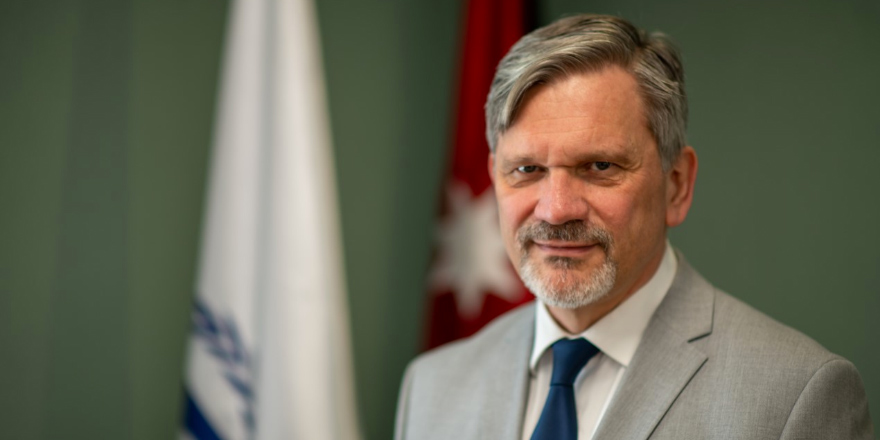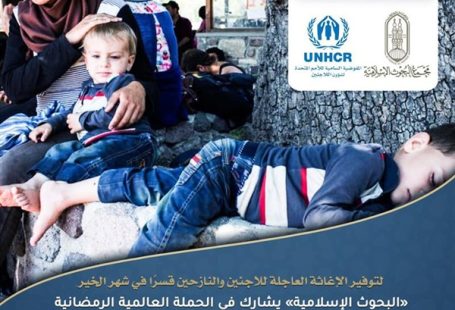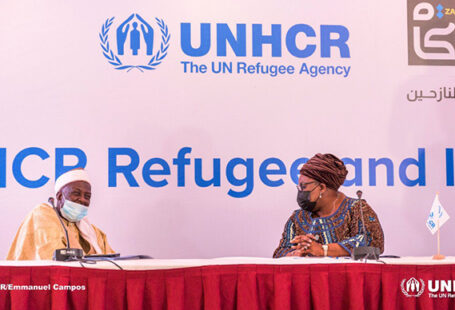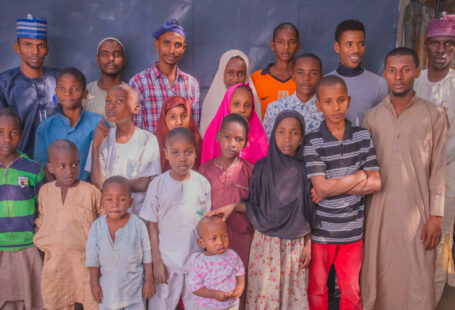Interview with Dominik Bartsch UNHCR representative in Jordan.
No country can tackle the COVID19 pandemic alone, and no part of our societies can be disregarded if we are to effectively rise to this global challenge. Jordan hosts over 750,000 registered refugees, out of which 20% of them are living in camps. An interview with UNHCR representative in Jordan, Dominik Bartsch explains the role of UNHCR Jordan in preventing the COVID19 outbreak and protecting refugee families to contain this health crisis.
- What are the main challenges your work is facing to serve and protect refugees in Jordan in light of the COVID19 outbreak?
First of all, it’s important to mention that preventing the spread of COVID19 is not just UNHCR’s challenge, but one that we must tackle side by side with the Government of Jordan. The challenges refugees are facing on the whole are the same challenges that vulnerable Jordanians are facing as well.
But specifically in terms of refugees, we are thankful that no case of COVID-19 has been identified among the refugee population in Jordan so far. Nevertheless, the health and wellbeing of refugees in Jordan is a key priority for us. UNHCR is working closely with the Ministry of Health, World Health Organization, sister UN agencies and partners to monitor the situation and its developments. The government introduced restrictions of movement to curb the spread has also impacted our work. We have closed registration and community centres to prevent the risk of crowding and exposure of refugees to the virus. Some protection activities, interviews and home visits had to be postponed to a later date.
Many refugees here in Jordan rely on the informal economy for work, and at UNHCR we are very conscious of the impact that a reduced number of job opportunities will have on their families’ lives. Over the last two weeks, UNHCR received hundreds of requests from refugees asking for additional support and assistance because of the dire financial situation they are finding themselves in. We are currently looking into ways in which we can support these families alongside the Government and International Community, but of course this requires additional funds and assistance from our supporters and donors.
- We are all aware that many countries are imposing movement restriction measures to limit the spread of Corona virus. How is UNHCR managing to reach out to refugee families amid these restrictions?
I am proud to say that this has actually prompted us at UNHCR to find innovative ways to maximize digital and online channels to continue our work and mandate of protecting refugees in Jordan. We had to close our registration and community centers, and to postpone interviews and home visits until a later date due to preventive measures to curb the spread of the virus. However, protection, legal counseling continue to operate through our Helpline and Hotline for urgent interventions and essential staff are on the ground to provide essential services. Our Cash Assistance programme has not stopped and we are aiming to reach over 32,500 refugee families monthly especially that the holy month of Ramadan is approaching, and we know that refugees struggle face challenging conditions to ensure their needs when they are fasting, not working, and restricted from movement. More is to be done for refugees, and every help counts especially that coronavirus does not discriminate, and it could really have a distressing impact on the lives of the most vulnerable families.
- What about the refugee camps? What is UNHCR’s response when it comes to protecting refugees in camp settings?
As you may know there are over 750,000 refugees registered with UNHCR Jordan, and around 20% of them live in camps. In order to keep the refugee camps functioning, our team in the field and our partners are working alternately to ensure that urgent needed support is provided, like distributing soaps and hygiene kits to the most vulnerable families. It is imperative that essential services such as hospitals, medical clinics and supermarkets continue to function. We are also providing additional hours of electricity in order to help children continue their schooling at home. We put a certain healthcare and hygiene measures and procedures in place to limit the COVID19 spread among refugee population. We made sure that our hospitals and clinics are well prepared and equipped with quarantine areas, should the needs arise.
- Can UNHCR cope with this scale of crisis?
Of course, this is a challenging time for us. We already had significant funding gaps before the outbreak of the virus, but with the support of our donors and the international community, I believe we will be able to respond to the urgent needs of refugees, especially when it comes to our ongoing preventive measures, healthcare provision and financial support for vulnerable families. Now more than ever, we need everyone on board to fight this outbreak with solidarity and inclusion. We are living in unprecedented times. Everyone is doing their part to help lessen the spread and impact of the COVID19.
Our advice to refugees is the same advice as to anyone living in Jordan. Wash your hands, stay at home and operate social distancing if you are going outside the house or shelter, as much as possible.











Social Profiles